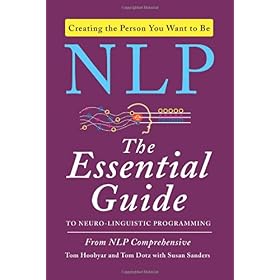In a recent blog post on Psych Central, Janet Singer wrote about her son Dan and his Obsessive Compulsive Disorder (OCD), which became so severe at one point that he was unable to eat. Distressed and confused Janet turned to a psychologist friend for help. He told her that Dan and his OCD were in a 'battle'. On good days Dan had the resources he needed to win the battle, on bad days the OCD over-powered him. This made a lot of sense to Janet and she began to refer to her son's OCD as 'the enemy'. She says it's a common approach to the treatment of OCD and enables the individual living with the condition to separate himself or herself from the 'disorder'. Janet says OCD is an 'insidious disorder' and that some 'battles' in the 'war' will be won and some lost, the important thing is that 'those suffering from OCD keep fighting'.
Over the years I've worked with many individuals living with obsessions, compulsions, and with OCD. I've been mostly successful in my helping, using a pluralistic approach, creating an individual therapy for each of my clients, using counselling, Cognitive Behavioural Therapy (CBT) and Neuro Linguistic Programming (NLP) .
Sometimes though I am unable to help. Often this is because the client has something else stressful happening in his or her life that constantly activates intense episodes of obsessive-compulsive behaviour. It's incredibly difficult to control OCD when the storm is raging. In those circumstances I offer support and I work with the client to resolve these 'external' sources of stress. If stressful life events happen whilst the client is having counselling then it's likely that he or she will have learnt strategies (1) to deal with this 'incoming' stress and (2) to manage their OCD. This usually prevents the OCD from escalating out of control.
In many ways I agree with everything that Janet Singer has said. One of my aims when working with clients living with OCD is to help them recognise and label OCD thinking; and it can be difficult to identify obsessive thinking when one is in the middle of it, the most irrational of intrusive thoughts can seem real when they are accompanied by intense feelings. But recognising and labelling OCD thinking requires the individual to stand outside of the OCD ; it is, I think, the first step towards mastery. It introduces the possibility of choice - 'This is my OCD wanting me to check the doors and windows of my house. Do I comply or do I not?' The next step may be to learn to tolerate the agony of not complying or not seeking re-assurance. There are many more rounds to go in this boxing match, but at this stage, and possibly for the first time, the OCD is on the ropes!
As you can see, it's very tempting to use a martial metaphor when talking about OCD. I've likened OCD to a boxing match, and Janet Singer uses words such as 'battle' and 'war'. Clients often use this kind of language when describing their experience of OCD and the process of recovery. When this happens I will often follow suit, working to create 'critical distance' between the client and their obsessions and compulsions, for the good reasons Janet Singer identifies in her blog post. I do have a reservation though about labelling OCD as the 'enemy'.
I worry that labelling OCD as the 'enemy' in effect creates a state of perpetual war within the individual, or possibly, periods of peace interrupted by fresh outbreaks of conflict.
These concerns come from my belief in the NLP pre-supposition 'all behaviour has a positive intention' and my training in the 'parts work' of family therapist Virginia Satir. In my view OCD is a 'part' of the individual and it has a positive intention. Like all anxiety disorders it is working incredibly hard at keeping the individual safe from harm. For example, when a person obsessively checks to see if their front door is locked there is a positive intention behind their behaviour, it is to keep his or her property and family safe and secure. In this context OCD isn't the enemy, it's the fire service, police force and National Guard all rolled into one. But of course whilst OCD behaviours might have a positive intention they nonetheless create havoc in the life of the individual living with OCD - this is a 'part' that needs retraining and re-assigning.
So, whilst I do help clients to personify their OCD - and use martial metaphors to 'defeat' the disorder - I may also look to re-assign or re-integrate a 'part' that is out of control by re-directing an individual's obsessive and perfectionist tendencies towards the perfection of a skill or hobby - I sometimes refer to the healthy obsession of the concert pianist. This means that time previously spent 'doing' OCD is spent having some fun and creatively filling the space that OCD used to occupy.





